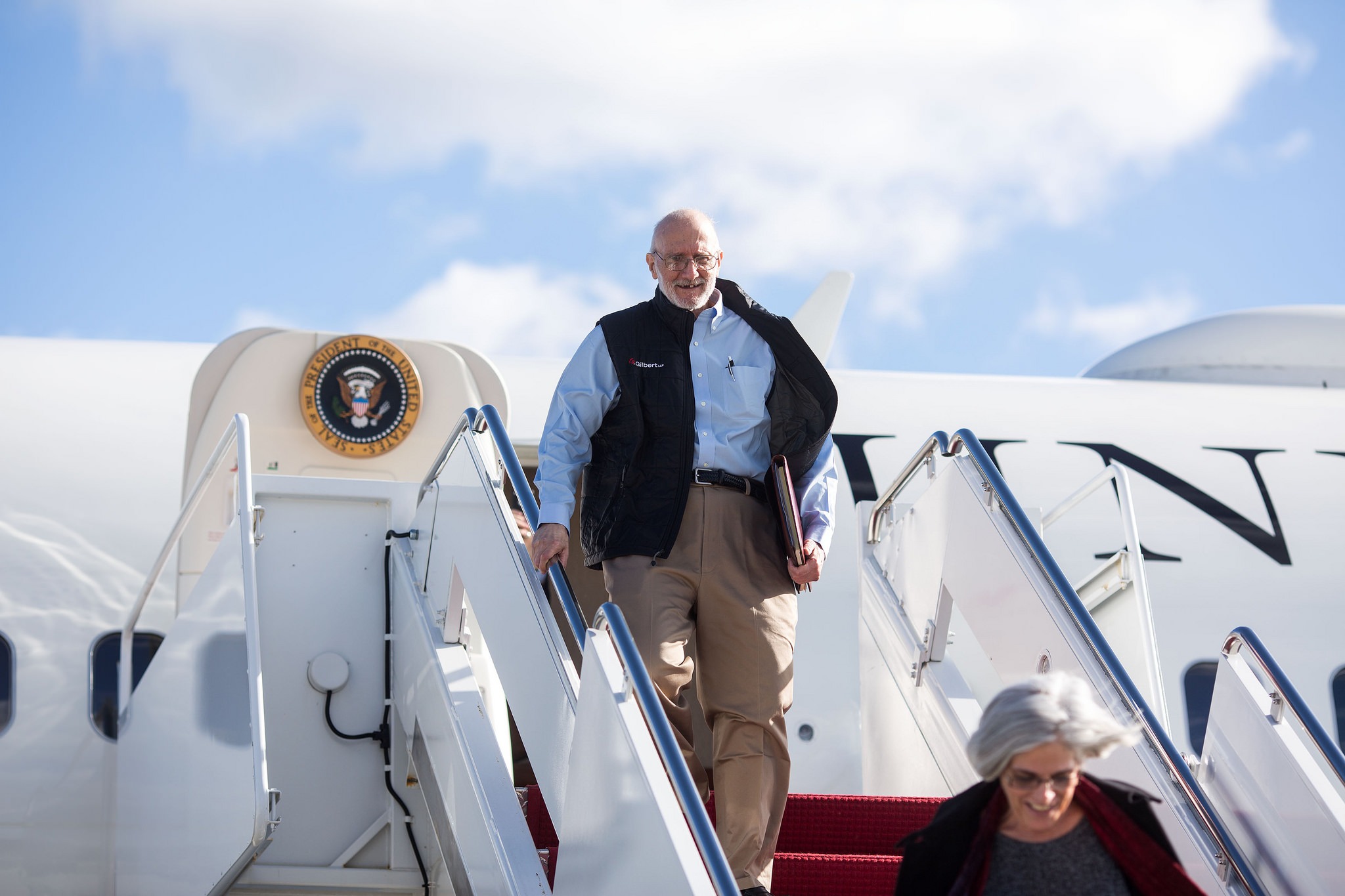Photo Credit: Lawrence Jackson
Am I the only one who cringed while watching last Sunday’s “60 Minutes” softball interview of Alan Gross, the American operative who was held five years in a Cuban military hospital after getting caught smuggling forbidden communications equipment into Cuba?
Five times in 2009, Gross traveled to that Caribbean nation ostensibly as a tourist. But, in fact, he went there in violation of a Cuban law that made it illegal to import communications equipment into Cuba that could be used to support U.S. efforts to undermine Cuba’s communist government. Gross was arrested, tried, and sentenced to 15 years in prison. He was released a year ago in a prisoner swap that returned to Havana three Cubans who had been convicted of spying against the United States.
Cuban officials accused Gross of being a spy. But he was no James Bond. Gross was a highly paid pack mule for a USAID program that surreptitiously sought to provide some Cubans with Internet and satellite communications equipment, including a military grade SIM card that made it nearly impossible to track its users.
However, despite detailed reporting on Gross’s activities by the Associated Press and Factcheck.org, “60 Minutes” let Gross get away with soft-peddling both his role in the botched scheme and his knowledge of how he was breaking Cuban law.
The ease with which he smuggled the forbidden equipment into Cuba during his first trip there, CBS News anchor and “60 Minutes” correspondent Scott Pelley prompted Gross to say, caused the USAID contractor to think what he was doing was no big deal.
“So once Cuban customs had cleared your equipment through on that very first trip, you concluded what from that?” Pelley asked him. Gross said it made him believe customs officials knew how the equipment would be used and didn’t object to him bringing that contraband into Cuba.
“They had every opportunity to stop me from bringing the equipment in, they knew what that equipment was and if they didn’t, you know, shame on them,” Gross answered.
And just how did Pelley respond to that curious defense? He left it unchallenged and moved on to another subject.
But in a 2012 investigative report, the Associated Press revealed that Gross was far from cavalier about Cuba’s customs operation during his actual trips into the country.
“To avoid airport scrutiny, Gross enlisted the help of other American Jews to bring electronic equipment a piece at a time,” the AP reported. “He instructed his helpers to pack items, some of them banned in Cuba, in carry-on luggage, not checked bags.” That hardly sounds like the actions of someone who thought Cuban customs officers knew what he was up to––and didn’t care.
When Pelley asked Gross why he made repeated trips to Cuba, despite the danger of detection, the 66-year-old Maryland resident said he did it because he “had a contract to fill.” That contract paid Gross a half million dollars to get equipment into Cuba under the radar of the country’s customs officials, according to factcheck.org. But instead of probing the money trail that led Gross to Cuba, Pelley let Gross assign a higher purpose to his Cuban misadventure.
“Look, you keep saying you had a contract to fulfill. That’s not all that’s going on here,” Pelley said to Gross. Then he set up Gross’s biggest dodge by offering him this excuse:
“You believed in the work.”
What followed was a give-and-take between Gross and Pelley that must have caused a rumbling in the graves of Ed Bradley and Bob Simon.
Gross: “I do believe that access to information is a right for everyone, but I have never interfered or participated in any kind of political activity overseas.”
Pelley: “You were bringing free speech to an oppressed people under the nose of a government that did not want that to happen.”
Gross: “Three billion people every day log on to the Internet around the world; how could that be circumventing government? Now, it might sound a bit naïve. So I’m naïve.”
Pelley: “Mr. Gross, you can tell me that you…”
Gross: “You can call me Alan.”
Pelley: “Alan, you can tell me that you believed in what you were doing, but you can’t tell me you didn’t know what you were doing.”
Gross: “I knew exactly what I was doing. I was setting up Internet connectivity for the Jewish community in Cuba. It was very simple; get ’em connected. That was it.”
Nowhere in the interview with Gross was there one of those “gotcha” moments that “60 Minutes” made famous, although there is plenty of fertile ground in the Gross case to mine them.
There was no mention of the arguments Gross and his wife Judy made in a $60 million lawsuit they filed against the USAID and Development Alternatives, Inc., the private company through which he was hired to carry out the secret USAID program. They settled with DAI for an undisclosed amount in 2013. USAID paid them $3.2 million last December. But for what? Was Gross a dupe for a bankrupt American policy that sought to bring regime change to Cuba? Or, was he a willing actor in the plot that Cuba foiled?
Also, “60 Minutes” made no effort to question Gross about “Cuba Twitter,” another USAID program that was launched shortly after his capture. It was a foolhardy attempt by the American aid agency to create a phony Twitter network for use in creating a popular uprising against Cuba’s government.
Just how long that plan was in the making and whether Gross’s work was in any way linked to the Twitter scheme is something that “60 Minutes” in its investigative prime would have explored aggressively.
As it is, “60 Minutes” has left that heavy lifting to others.
DeWayne Wickham is the dean of Morgan State University’s School of Global Journalism and Communication, and a columnist who has made 20 reporting trips to Cuba since 1999.




What do expect when the President of CBS News is a protege of Roger Ailes?
From his bio on Wikipedia:
“Rhodes began his career in television journalism with Fox News, where he joined as a Production Assistant before the channel launched in October 1996. He eventually became Vice President, News.”
What I want to know is why no one points this out? There is a reason he allowed Lara Logan to use a bogus source to fan the flames of the Benghazi “scandal” then let her return after a slap on the wrist. Not how CBS treated the much more accomplished Dan Rather.